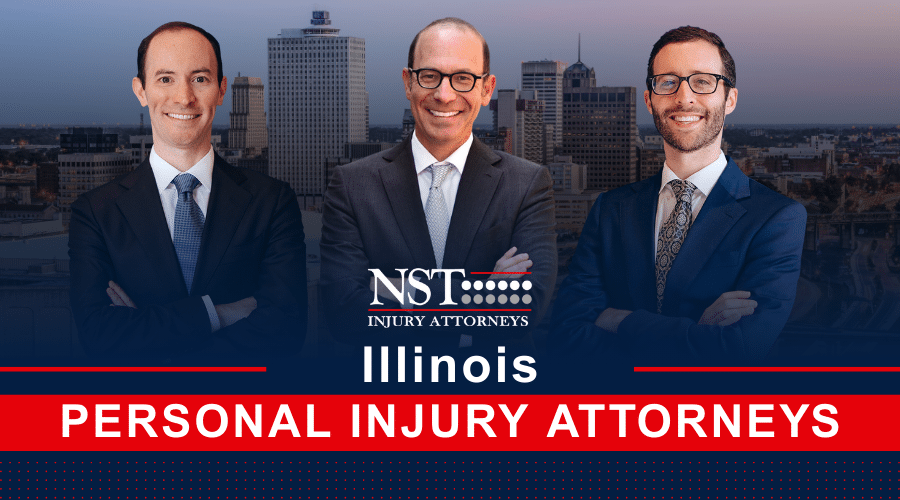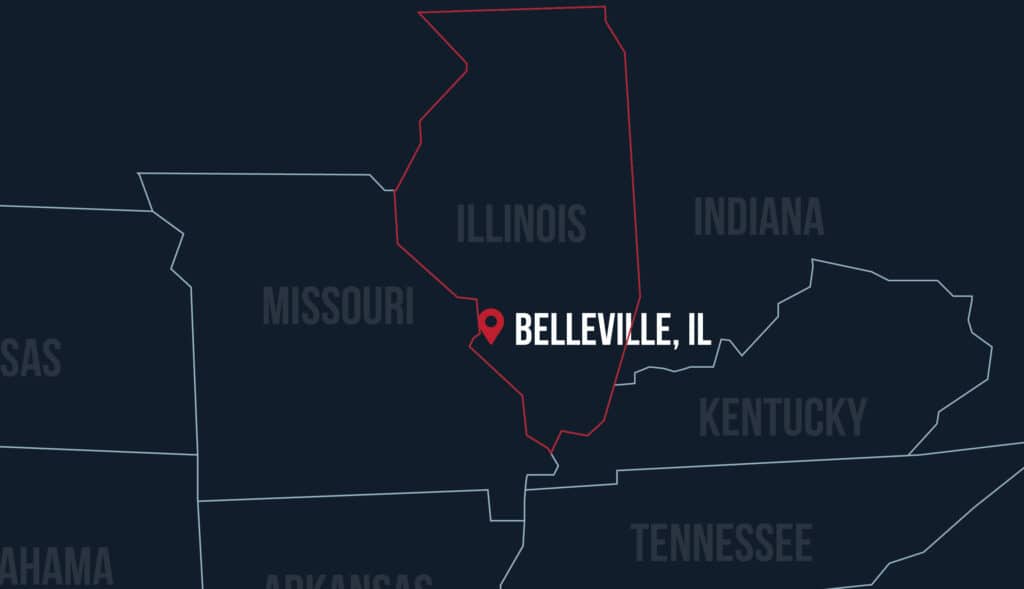Free Consultation | "NST is the Way to Go!"
 Skip to content
Skip to content


At NST Law, we are dedicated to helping injured individuals and their families get the justice and compensation they deserve.


Expertise
Mr. Trotz has handled injury cases involving auto accidents, slip and fall, premises liability, and negligent security. Every day, Mr. Trotz represents those who have been injured and many of his clients have sustained traumatic and life-altering injuries.
An injury causes disruption and stress in daily life due to chronic pain, doctor’s visits, and mounting medical bills. If another party’s negligence caused your accident, you might be eligible to seek compensation for the challenges and financial burdens associated with your resulting injuries and other losses. The Illinois personal injury lawyers at NST Law can evaluate your case and help you understand your rights.

NST Law handles a wide range of personal injury cases. We have over 32 years of experience advocating for personal injury victims. The attorneys at our Illinois office specialize in the following practice areas:
Car Accidents
The Illinois Department of Transportation (IDOT) saw a reduction in traffic accidents in 2020, primarily due to the pandemic and accompanying lockdowns. Still, the department received reports of 246,752 crashes involving motor vehicles last year. Injuries were apparent in 52,090 (21.1%) car accidents, and deaths occurred in 1,088 of these traffic accidents, accounting for less than 1% of the crashes. Speeding contributed to nearly half (44.9%) of all fatal accidents and over one-third (37.3%) of all crashes involving injuries.
Motorcycle Accidents
IDOT reported that 1.2% of all traffic crashes in 2020 involved a motorcycle, along with 4.2% of injury crashes and 14.1% of accidents resulting in at least one death.
Truck accidents can be devastating simply due to the sheer size and weight of commercial vehicles. In 2020, IDOT attributed 3.8% of all motor vehicle accidents to tractor-trailers, along with 3.1% of injury crashes and 9.7% of total crashes involving fatalities.
Losing your loved one without warning due to someone else’s negligence or wrongdoing can be a painful and seemingly unbearable experience. Trying to grief your unfathomable loss while also attempting to juggle the financial fallout can seem impossible. It’s important to hold negligent or reckless parties accountable for their actions resulting in someone’s death so that hopefully, no one else has to suffer the same harm from the same individual or other individuals performing in similar capacities. Also, you have a right to restore your family’s financial security and obtain some semblance of closure and justice.
Workers Compensation
Workplace accidents causing fatalities are rising in the U.S., with a 2% increase from 2018 to 2019. In 2019, Illinois had 158 deadly work injuries out of a nationwide total of 5,333. Per the raw data, the top three most dangerous professions for an Illinois worker are truck driver, construction worker, and miner. Transportation incidents accounted for 53 of the total 158 fatal work injuries in Illinois in 2019.
However, it’s important to note that there are three times as many professional drivers as there are police officers in the state, which could contribute to the higher percentage of deaths seen among truck drivers versus cops. Regardless, violence and other injuries by persons or animals accounted for 31 of the total 158 fatal Illinois work injuries in 2019.
Falls, slips, and trips was the third most frequent deadly work event, accounting for 26 fatalities in 2019. Nationally, the order slightly differs with falls, slips, and trips coming in second after transportation incidents (still ranking first accounting for 40% of all fatal work injuries), and violence and other injuries by persons or animals ranking third.
Injured parties in Illinois can receive compensatory damages for their harm and losses resulting from the negligence or recklessness of others. These damages include both economic and non-economic damages per state law.
Economic damages are all tangible or monetary damages, such as:
Non-economic damages are intangible losses that have a somewhat more subjective or varying value, including:
Punitive damages are another category of damages saved for situations where the defendant’s actions were egregious. These damages intend to punish the defendant for particularly reprehensible conduct rather than compensate the injured person. Punitive damages are not available in medical malpractice cases in Illinois.
Illinois doesn’t place caps or maximum recovery amounts on damages awarded in personal injury lawsuits.
The personal injury attorneys at NST Law can help calculate the worth of your injury claim and ensure that your demand for compensation includes all available types of recoverable damages. In cases involving severe injuries, it’s important to recover the full amount of available damages so that you can pay for your past, current, and future medical care without fear of financial fallout. A comprehensive damages assessment is critical to determine whether any settlement offers you receive are fair and adequate.
The court will assess the extent of your responsibility to determine if you can recover damages using the comparative fault rule. Under Illinois law, you cannot receive compensation if your share of the blame is more than 50%. If your percentage of liability is less than 50%, the court can reduce your damages in proportion to the amount of fault attributed to you.
The following examples help to illustrate how the comparative fault rule works in practice:
Never admit fault regardless of what blame you think you share with the defendant. Speak with an attorney who can appropriately consider the facts of your case and determine what percentage of fault you might be liable for. The personal injury attorneys at NST Law will work with you to assess your potential fault and uncover any evidence of liability that the defendant might try to use against you as a part of their defense.
There are limitations on the duration of time you have to file a personal injury case called statutes of limitations. Missing these legally binding deadlines could potentially bar you from recovering compensation for your losses, so you should have a plan of action that includes seeking legal advice as soon as possible after an injury.
Illinois’s statute of limitations for personal injury cases is generally two years from the date of the accident. There may be different statutes of limitations for specific types of claims, and there are some exceptions that allow you to file after the time limit has passed. Still, you should never count on these exceptions before a lawyer reviews your case and advises you on the applicable laws.
The personal injury lawyers at NST Law can inform you of the requisite time restraints pertaining to your case and prepare a strategy that ensures you meet all relevant deadlines.
After an accident causing an injury, you likely have many questions. The personal injury lawyers at NST Law will listen to your concerns and provide you with the answers you need to make informed legal decisions for you and your family’s financial future and well-being.
The personal injury attorneys at NST Law work for you on a contingency fee arrangement, meaning we don’t get paid until we settle your case or receive a verdict in your favor. We value honesty and transparency, and we will commit to discussing all fees and costs with you before starting work on your case.
Most personal injury claims settle outside of court. The lawyers at NST Law work with clients to prepare a case strategy that accounts for the possibility of settlement or trial.
Be sure to preserve any evidence from the accident scene, including photos, videos, and witness contact information. Additionally, keep records of your medical documentation and precisely follow your doctor’s treatment recommendations. Contacting a lawyer earlier in the process can help build a robust case, giving your attorney ample time to investigate the facts and gather evidentiary support for your injury claims.
Since 2016, car manufacturer facilities must complete a certification program through the Department of Safety before autonomous vehicles can be tested or operated on in the state of Tennessee.
Drivers have the responsibility of protecting pedestrians on our roads by staying alert, yielding at crossings, and exercising due care to avoid injuring people. In all situations, drivers must:
Tennessee is notorious for being one of the most dangerous places in the U.S. for pedestrians. For the safety of pedestrians, drivers must be aware of the different types of instructions in pedestrian safety laws:
NST Law has committed over 32 years to helping injury victims across Illinois and other states get fair compensation after an accident caused by someone else’s negligence or recklessness. Our firm has recovered over $1.5 billion for injured clients. We are passionate about fighting for our clients and dedicating our knowledge, expertise, resources, and care to help them recover from their financial harm caused by a traumatic event.
We also take pride in giving back to our communities to help improve the lives of those in need in and out of the courtroom.
Contact our firm in Belleville, Illinois today for a free consultation to discuss the details of your personal injury accident case.
